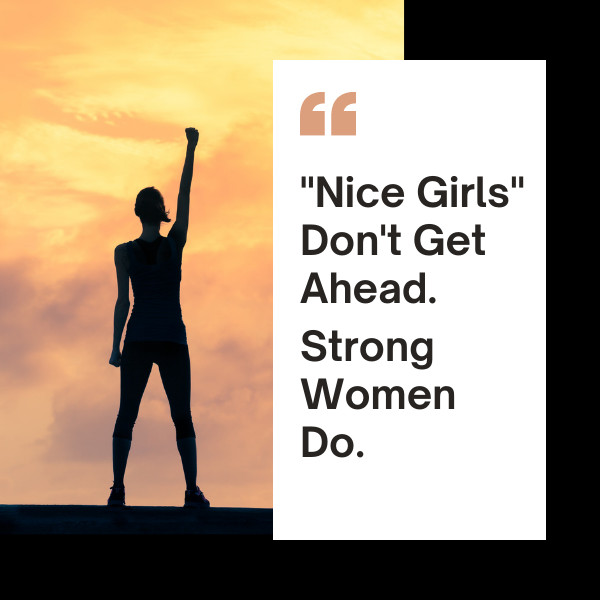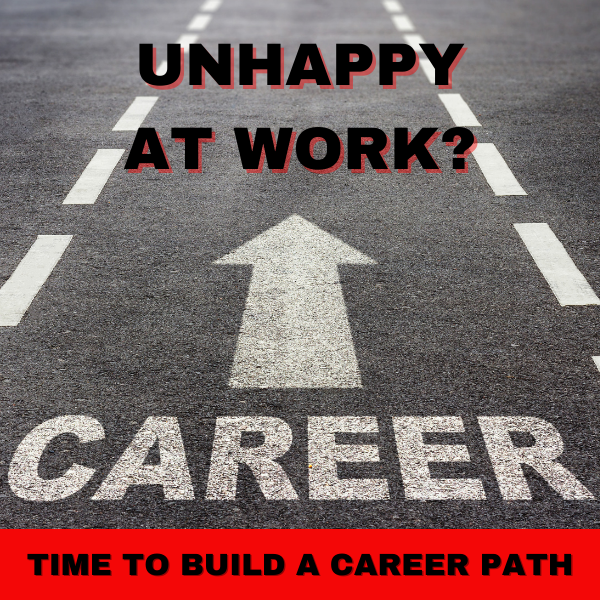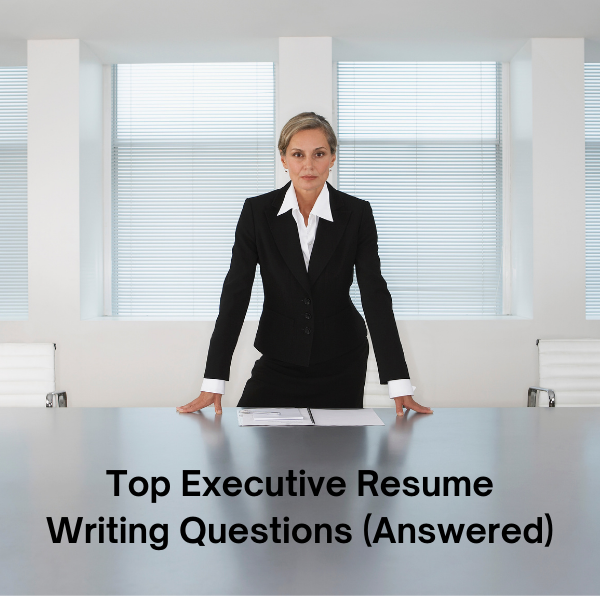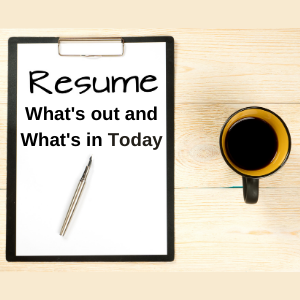“Nice Girls” Don’t Get Ahead. Strong Women Do.
Although I started my resume writing business in 2014, I’ve been in the career field over 2 decades. Over the years, I’ve read a lot of business books. Some books provide practical advice. Some provide inspiration. A few provide both.
As editor of career intelligence, The Savvy Careerist’s Resource, I had the chance to read the (then) recently published Nice Girls Don’t Get the Corner Office: Unconscious Mistakes Women Make That Sabotage Their Careers by Lois P. Frankel, PhD. It was the revised edition of the New York Times best seller Nice Girls Don’t Get the Corner Office: 101 Unconscious Mistakes Women Make which was published a decade before.
I saw myself on many of the pages. Besides practical advice the book is peppered with stories from Frankel’s coaching practice which provide real-life lessons.
As the title suggests, the book is set up as series of mistakes to avoid followed by coaching tips that can be implemented immediately. When I was offered the opportunity to interview Dr. Frankel, I jumped at the chance.
Want To Get Promoted? Up Your Game.
The proverb “all things come to those who wait” was meant to instill patience. The truth is, “everything comes to him who hustles while he waits,” attributed to Thomas Edison, is a better remembrance for those who want to get ahead in their career.
The days of getting promoted because you’ve been warming a chair for X number of years are over.
Today, you need to position yourself for advancement actively.
Build and Nurture Your Network
Whether you’re an executive or a young careerist, it’s easier to move ahead when you have help. Most people think of building a network as making external connections. However, establishing relationships within your organization is equally important, particularly if you’re angling for a promotion.
Attending industry events is a great way to meet new people; however, don’t forget about the people you work with now. Go beyond the company’s holiday party, take advantage of opportunities to meet colleagues at all levels. Work on the company newsletter or volunteer to help with the next event or participate in the “whatever” drive.
Get to know colleagues at all levels. Turn acquaintances into friends over lunch or dinner. I have too many friends, said no one ever.
How To Create A Career Path (And Why You Should)
Working at something you’re passionate about doesn’t automatically lead to job satisfaction. A large paycheck alone won’t necessarily make you happy at work either. It turns out, being on a career path with opportunities to move forward is almost as coveted as getting a raise.
The majority of professionals of all ages, responding to a 2019 CNBC/survey Monkey* online poll, said that more training or learning opportunities would most improve their job satisfaction after a higher salary. Having more paid time off came in second, and a more flexible schedule was third.
The survey noted that dissatisfied workers are more likely to cite a lack of career advancement than not feeling well compensated. “Four in 10 workers give their companies a negative rating on how well they help their employees advance their careers,” said Jon Cohen, SurveyMonkey Chief Research Officer.
Most Popular “How To” Executive Resume Writing Questions
Crafting a compelling executive resume that gets results isn’t easy. Many executives and professionals turn to an executive resume writing service. They spend time researching who is the best executive resume writer.
Other professionals looking for an executive position decide to tackle executive resume writing themselves. When talking to a professional resume writer, these are some of the “how-to” questions people ask.
12 Often Asked Executive Resume Writing Questions
#1 What do employers look for in a resume?
Employers are looking for people to solve their problems. A hiring manager wants to know what you can do for them.
People in similar positions at similar companies do similar things. What differentiates candidates from one another is the impact they have had on their employer(s).
More specifically, a recruiter or hiring manager wants to see how you saved time, cut costs, improved productivity, generated revenue, etc.
How to Communicate More Effectively with Introverts (And Extroverts)
Being able to communicate effectively becomes essential as you rise in your career. Any team you manage will include members with vastly different communication styles. The department heads and Board members you may work with do as well.
Sadly, most of us think of communication as output—speaking, writing, instructing, explaining, etc. We forget about the flipside, input, or listening. But we can change that.
As a vocational counselor, I learned about the Myers-Briggs Type Indicator (MBTI), which helps determine career satisfaction based on a person’s personality type. As a former psych student, I was intrigued. I read more about the MBTI and became certified to administer it as well.
Today, the MBTI is used by more than 88% of Fortune 500 companies for “people growth,” according to The Myers-Briggs Company, which publishes the assessment.
One of the most significant benefits I’ve found is that it can help people understand their communication style and others’ communication style. Here are a few things I learned about how we interact from Type theory.
How To Get Hired In A Highly Competitive Job Market
There’s no doubt that looking for a job during a pandemic is exceptionally challenging. Right now, millions are furloughed, underemployed or out of work. The United States unemployment rate was 6.7% (with 10 million+ unemployed) in November 2020, according to the United States Bureau of Labor Statistics latest news release. While this number has declined over the last six months, it’s not close to the 3.5% level reported in February 2020.
That said, looking for a job in a booming economy isn’t easy either. When people feel confident in finding another job, they often decide to begin exploring opportunities. As they move from being passive job seekers (those who need to be enticed to move) to active job seekers, competition for plum positions grows.
The truth is, standing out from your competition is essential in any job market. It’s particularly important when you’re pursuing executive roles. One of the most effective ways to do that is by establishing yourself as a thought leader. Someone that people can recognize as an authority in their industry.
While you can’t become a thought leader overnight, you can begin working toward that today by providing value to your colleagues and community.
Does Your LinkedIn Profile Make You Look Out Of Sync?
Anyone who’s looking for a new job or potential clients has been told they need to be on LinkedIn. That’s true.
It’s also true that you need to be on LinkedIn because whether you like it or not, your LinkedIn profile, or lack of one, is part of your personal brand.
Certainly, recruiters and hiring managers who receive your resume will review your LinkedIn profile. So will potential clients and people that you meet at conferences, seminars, or networking events who want to learn more about you. Make sure what they find is your best self.
That includes having a headshot.
Headshots Are Essential
I know there are people who resist putting up a headshot because they’re afraid of discrimination. Yes, it’s out there. There are people who will think you’re too old or too young. Too ethnic or not ethnic enough. They may take an instant dislike to you because you remind them of a former boss or a neighbor they don’t like.
However, the benefits far outweigh the potential risks.
Despite its business focus, LinkedIn is considered social media. LinkedIn’s research shows that LinkedIn profiles with a photo get 21X more views and 9X more connection requests.
January 2021 Is Here. Will Your Job Search Be Successful?
Welcome to 2021!
2020 has been extremely challenging. Most of us have had our professional, and personal lives turned upside down. Many people found looking for a new job frustrating, exhausting, and disheartening.
Finally, 2020 has been kicked to the curb. The holidays are behind us, and a brand-new year, full of possibilities, stretches before us.
If your goal is to get a new job in 2021, it’s time to get going. Don’t wait for tomorrow. Start today.
Get Your Career Marketing Tools Ready
#1 Make sure your resume is recruiter and employer ready. Your resume is often how hiring managers meet you. A boring list of duties and responsibilities is unlikely to motivate anyone to contact you.
People in similar positions do similar things. The best way to differentiate yourself is by demonstrating your value. And the way to do that is by creating a results-driven resume in a modern, easy-to-scan format.
5 Ways To Radically Improve Your Chances On LinkedIn
Sadly, LinkedIn is something many people neglect. They put in their job histories. They may even put a few sentences in their summary before considering it good to go.
Huge mistake.
Today, a robust, optimized LinkedIn profile that makes you stand out is essential to a successful job search.
If you have a skeleton profile with companies, job titles, a default headline and little else it’s unlikely that you’ll even be noticed in a recruiter’s search. Your profile may be 679 in a search that delivers 724 results.
Even if a recruiter, does plow through all 724 profiles, if a recruiter doesn’t see anything compelling he or she is unlikely to contact you. Today, hiring managers are looking at your profile too, so it really needs to pop.
Here are 5 ways to radically improve your chances of standing out on LinkedIn.
#1 Have A Photo
Many people shy away from putting a photo on their profile. Some fear discrimination. Others don’t like photos of themselves. I fall into the former. However, the upside of having a headshot far outweighs any potential downsides.
LinkedIn profiles with photos get 21X more views and 9X more connection requests. according to LinkedIn. On the other hand, if you don’t have a profile photo people wonder why. They wonder if you are hiding something.
Five Resume Elements That Should Be Forgotten
You’re probably familiar with the phrase “everything old is new again.” But when it comes to resumes, everything old is not new again. It’s just old.
Resumes have changed a lot over the last 15 years. They’ve morphed from boring employment histories to compelling marketing documents designed to sell you — the candidate — to recruiters and employers. While some basic components like professional experience and education remain, there are other elements that make your resume and, by default, you look dated.
1. Objective Statement
Although objective statements have been passé for years, I still see them on resumes. One reason they fell out of fashion is that they were all basically the same. Every candidate was looking for a great company, where they worked with awesome colleagues, and had room to grow. Boring. Worse, objective statements didn’t address what every employer wants to know “WIIFM?” (what’s in it for me?). Scrap the objective statement and replace it with a summary that demonstrates your value.










